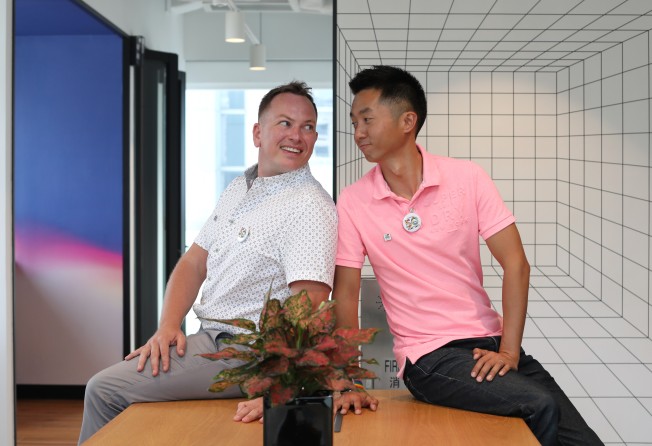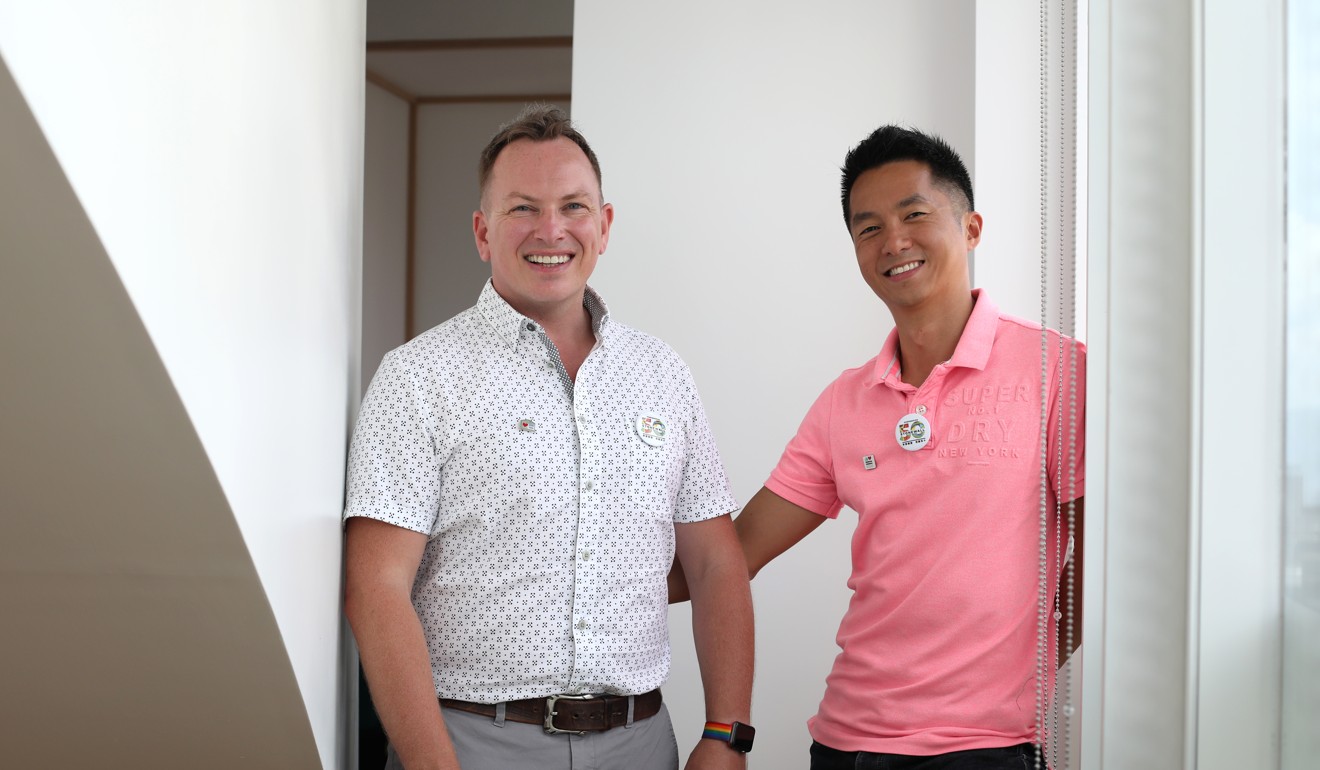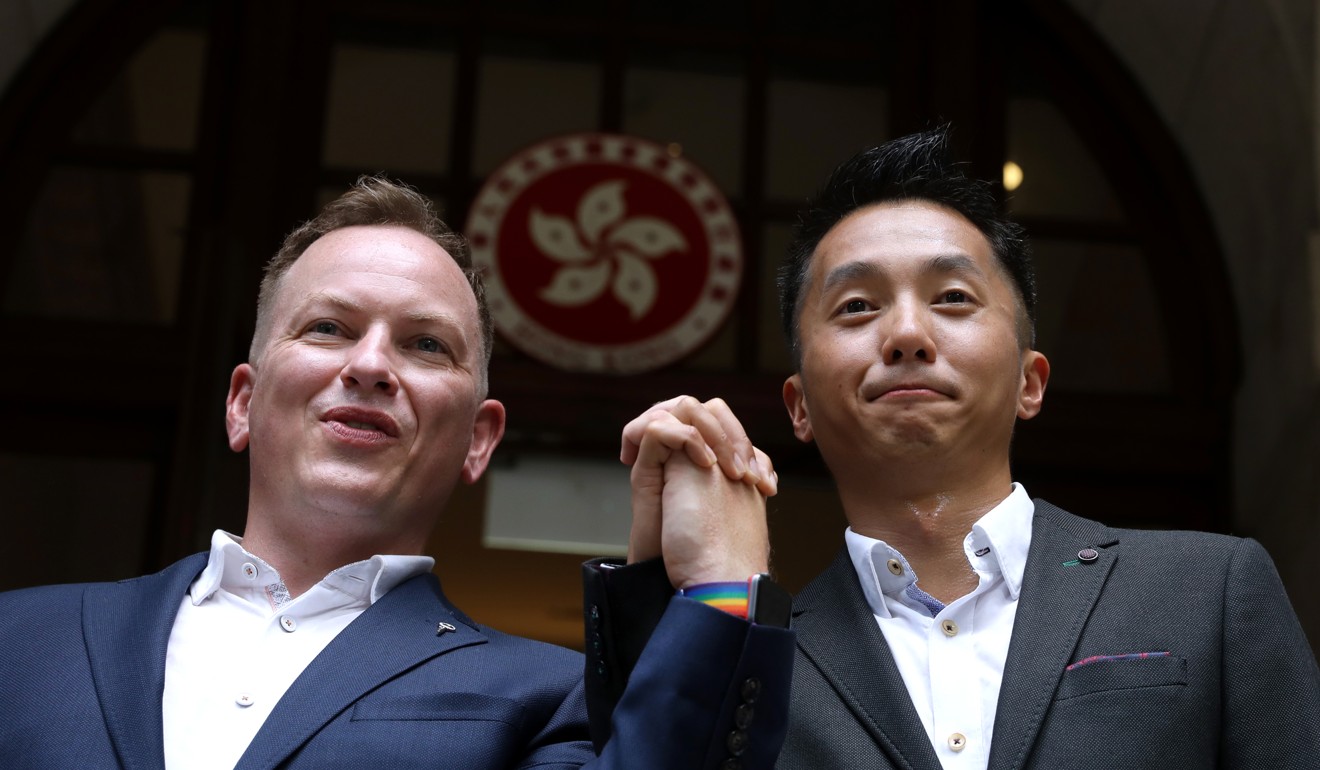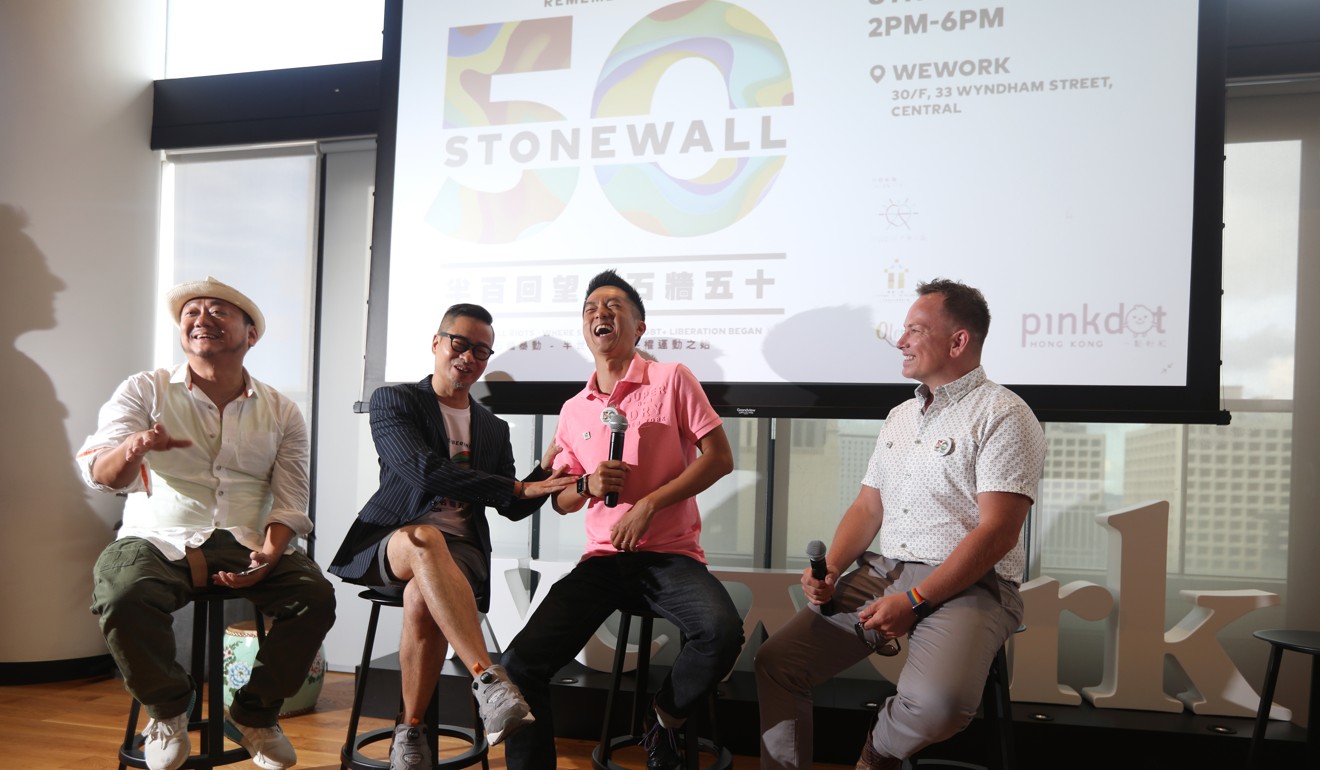LGBT couple in landmark Hong Kong case say coming forward was vital to give encouragement to others who still feel the need to hide their sexuality
- Civil servant Angus Leung speaks out after feeling alienated in workplace over court ruling
- Court of Final Appeal ruled on June 6 that Leung and his husband Scott Adams were entitled to spousal benefits and joint tax assessment

Having recently won a landmark court case against the government, Angus Leung Chun-kwong and his husband Scott Adams recalled giving their first press interview four years ago, holding hands on a windswept waterfront promenade.
But Leung, a senior immigration officer, and Adams, a pilot, wanted to keep a low profile at the time, so they faced the sea with their backs to the camera.
Since then, the couple have emerged as two of the most recognisable faces in Hong Kong’s slowly expanding gay, lesbian, bisexual and transgender rights movement.
They now vow to tell their story, bringing positive change to those who are too afraid to come out of the closet, especially Leung’s fellow civil servants.
“It makes them think that if we could do it they can too,” Leung said, a rainbow watch strap visible on his wrist as he gesticulated.
Adams, wearing a matching watch strap, chimed in: “What we are trying to do is to give a positive image. Be proud of who you are.”
On June 6, the Court of Final Appeal ruled in favour of the pair, decreeing the Civil Service Bureau and Inland Revenue should grant them spousal benefits and joint tax assessment, even though the government insisted that Hong Kong does not recognise the pair’s 2014 marriage in New Zealand.
The justices opined that the government was wrong in suggesting such a move would jeopardise its duty to protect the institution of traditional marriage.
It was a result of hours of case preparation and days of meticulous presentations in court. But the pair said it was their experience outside the courtroom that gave them the strongest urge to be more vocal.
Leung, who has spoken to the Post before, is now eager to reveal what had happened to him in his workplace after he filed his court action in 2015.

“The first time after I was in the newspaper, when I got back to the office, things went all quiet. I didn’t have anybody talking to me for a whole week,” he said, adding that probably 90 per cent of his colleagues at Immigration Tower in Wan Chai kept their distance from him.
He and Adams, a Briton who has been living in Hong Kong for years, took five weeks off to travel around the world to take their mind off the defining court decision.
But on the first day he returned to work, there was no warm reception. “No more than three people came over and congratulated me,” he said. That included a female colleague who has been supporting behind him for the past few years.

“Other people just ignored it as if nothing had happened,” he added. “It felt horrible. It’s a toxic environment.”
He said he and Adams had been determined to fight to the end, despite suffering setbacks in the lower courts. While they did not want to do it anonymously, they also decided at the outset that they “would not do the press”. They did not show up in court in 2017 on the day the Court of First Instance ruled partially in favour of them, granting Leung spousal benefits.
It was not until they began to encounter people – some of them friends of friends, others strangers encountered in the street – that they felt more compelled to speak out.
They found that not everyone had a good grasp of what was going on. Some thought they were fighting for same-sex marriage. “No, this is not our case,” Leung said.
In June last year, the Court of Appeal ruled against them entirely. But it was also the first time during the hearing that the couple stepped out of their comfort zone and addressed the press.
“I told Scott: let’s go out and then I held his hands and we left the court. And apparently that was the biggest moment of all time,” he recalled.
It was a turning moment for them, Adams said. “We realised the more press we did, the more we could talk about the story. And hopefully, the more we could inspire other people.”
Leung, who has been with the Immigration Department for more than a decade, also recalled having an impact on other civil servants when he attended the Human Library, an anti-violence event that featured contributions from vulnerable marginalised people. Almost half of those who attended were civil servants who were still in the closet, he said.

They were all curious what price Leung had to pay for being so outspoken while working for a disciplinary force. “I just told them to be yourself. There is nothing to be afraid of,” he said.
While it is expected the government will eventually grant spousal benefits to civil servants who have entered into a same-sex marriage overseas, whether those whom Leung met at the Human Library will come forward to take advantage of it is another matter. It is a precarious move for some which could lead to them outing themselves.
Adams has one more positive message for them. “If you have 10,000 people doing it, nobody is going to care because you have so many with you,” he said.
“We need to encourage people to claim the benefits, to make it normal, and to make it not an issue,’ he said.